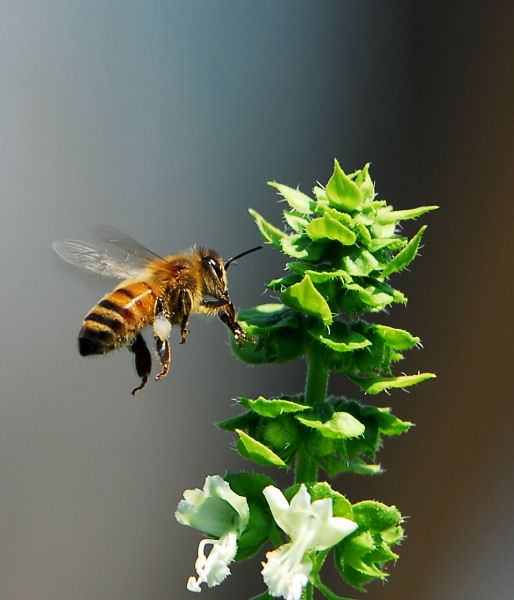 http://www.democraticunderground.com/discuss/duboard.php?az=view_all&address=280x34941
http://www.democraticunderground.com/discuss/duboard.php?az=view_all&address=280x34941Keeping healthy bees requires some maintenance.
They are not difficult, but there are some things you
need to know.
Neither
Starkraven nor myself had any previous experience with bees.
We just blundered in and managed to do OK (part luck, part good research).
We used the InterNet for research, and eventually ordered our equipment and bees online.
There are "packages" online that included everything you will need.
We ordered the hives and assembled them during the Winter, and ordered the bees in the Spring.
They came through the mail (!).
We now have two healthy hives (2nd year) and will get a Spring honey harvest in a few weeks. Our vegetable garden and fruit trees are amazingly productive, almost every blossom produces fruit.
The bees themselves are fascinating. The more we learn about them the more fascinating they become. Unless they feel threatened, they are gentle and not aggressive.
They are very hearty creatures, but there are times they need our help.
If you are serious, I have one TWO recommendation.
1)
Join your local BeeKeepers organization. There is one near you.Beekeepers are some of the nicest, relaxed people you will ever meet.
You can get some
hands-on experience working around hives through your local organization.
PLUS, you will have access to the local information about pests, flows,Africanized bees, and disreputable operators.
We joined our local BeeKeepers club and it has proven invaluable.
2)
Touch base with your local County Extension.There are certain requirements concerning registration and inspections.
We generally don't
do government regulations, but in the case of our bees, we decided to register our hives and have them inspected. Since we have registered our hives, no one else can put a colony within a certain distance of our registered location.
We LOVE our bees!
